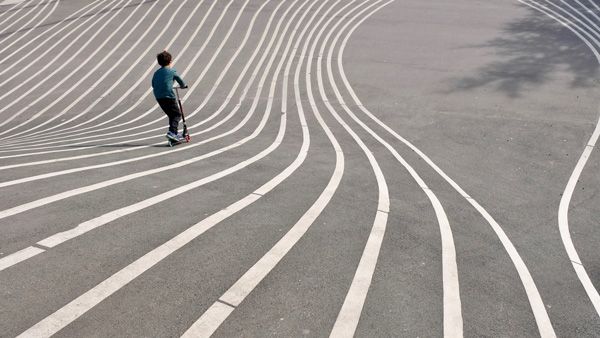
" The development of the mind comes from movement. "
Maria Montessori
We can learn so much from our body and the way we move.
We can move our mind and change our mindset by consciously moving our body.

Before words, movement was our first language and the way humanity related to the world and to others. We move because we need to express ourselves, experiments, connect to others, be creative, exprience emotional flow and mindfulness, belong and have fun!


One differentiating feature of AWENE approach is embodied cognition. It's at the very heart of my practice.
As an Open Floor embodied movement trainer, I play with the body's intelligence and fundamental movement, both of which play a powerful role for well-being and the agility of our mindset.
Depending of the needs of my client, I can use this powerful embodied expertise and tool for 1:1 individual coaching as well as for group workshops.

based on universal concepts of embodiment and mindfulness. It is rooted in physiology, kinesiology, psychology, neuroscience, mindfulness and the creative arts.
The 10 movement resources identified by the somatic approach Open Floor International as key skills to embody and move with. They are particularly relevant for play and for agile and resilient mindset.

Mindset: Supports presence, foundation and resilience (grounding, despite turbulence of life)
Embodied learning: Moving with a sense of weight, substance, solid on our feet.

Mindset: brings balance to the nervous system, emotional intelligence
Embodied learning: follow and engage a range of impulses, know how to be quiet, calm and soothe.

Mindset: for recharging and openness. Balancing being/doing, managing time and energy. Resilience in a distracted and fast-paced world
Embodied learning: a moment to feel, breathe, rest and witness the present moment

Mindset: brings creativity, curiosity. Self-awareness on how we interact with others. Navigating with uncertainty
Embodied learning: self-awareness, awareness of the space around us and how we move into that space. Moving confidently, creatively and safely in hall directions.

Mindset: setting intention and purpose. Being able to take the first steps, and staying motivated despite obstacles (resilience)
Embodied learning: cultivating the sensation of intention and clarity; knowing your starting point, your aim and staying in your body for the journey

Mindset: brings fluidity and stability. Supports resilience (knowing how to be balanced)
Embodied learning: finding your center, feeling an inner connection for rest and balance.

Mindset: supports the ability to fully express yourself. Authenticity
Embodied learning: inhabit a full range of movement between opening up, radiating outwards and drawing in.

Mindset: supports the ability to let it go and let it be. Release control, trusting the process, creativity, emotional intelligence
Embodied learning: relaxed body. Release physical tensions and what hold us back.

Mindset: opens curiosity and courage. Self-awareness on how we interact with others and the world. Relational Intelligence
Embodied learning: moving closer and stepping away. Starting movement opening and closing communication and connection

Mindset: brings adaptability, flexibility. A sense of belonging
Embodied learning: Ability to change shape, transform and merge with something greater than ourselves.